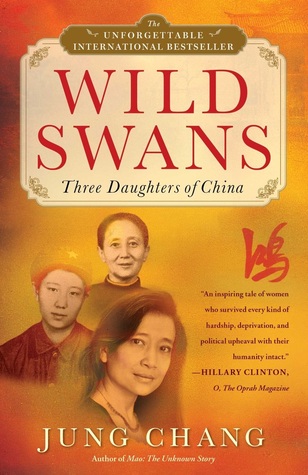More on this book
Community
Kindle Notes & Highlights
Policy toward prisoners was an intricate combination of political calculation and humanitarian consideration, and this was one of the crucial factors in the Communists’ victory. Their goal was not just to crush the opposing army but, if possible, to bring about its disintegration. The Kuomintang was defeated as much by demoralization as by firepower.
The Party’s all-around intrusion into people’s lives was the very point of the process known as “thought reform.” Mao wanted not only external discipline, but the total subjection of all thoughts, large or small.
Becca Nelson liked this
Meetings were an important means of Communist control. They left people no free time, and eliminated the private sphere.
Becca Nelson liked this
This was a key invention of Mao’s—to involve the entire population in the machinery of control. Few wrongdoers, according to the regime’s criteria, could escape the watchful eyes of the people, especially in a society with an age-old concierge mentality. But the “efficiency” was acquired at a tremendous price: because the campaigns operated on very vague criteria, and because of personal vendettas, and even gossip, many innocent people were condemned.
Becca Nelson liked this
He had a number of leading writers arrested and labeled them a “counterrevolutionary conspiracy,” a terrifying accusation, as “counterrevolutionary” activity carried the harshest punishment, including the death sentence. This signaled the beginning of the end of individual expression in China. All the media had been taken over by the Party when the Communists came to power. From now on it was the minds of the entire nation that were placed under ever tighter control.
In the early 1950s, a Communist was supposed to give herself so completely to the revolution and the people that any demonstration of affection for her children was frowned on as a sign of divided loyalties.
The whole nation slid into doublespeak. Words became divorced from reality, responsibility, and people’s real thoughts. Lies were told with ease because words had lost their meanings—and had ceased to be taken seriously by others.
Becca Nelson liked this
Another means of regimentation, setting up canteens in the communes, was an obsession with Mao at the time. In his airy way, he defined communism as “public canteens with free meals.”
“Think of all the children in the capitalist world—they can’t even think of owning an umbrella!”
The pair of giant bronze incense burners in front of the temple were toppled, and some boys urinated into them. In the back garden, pupils with big hammers and iron rods went along the sandstone bridges casually breaking the little statues. On one side of the sports field was a pair of towering rectangular tablets made of red sandstone, each twenty feet high. Some lines about Confucius were carved on them in beautiful calligraphy. A huge rope was tied around them, and two gangs pulled. It took them a couple of days, as the foundations were deep. They had to get some workers from outside to dig
...more
One night, I heard that 26 August had gathered hundreds of supporters and attacked a factory which was a stronghold of Red Chengdu. They captured the workers and tortured them, using methods including “singing fountains” (splitting their skulls open so the blood burst out) and “landscape paintings” (slashing their faces into patterns). Red Chengdu’s broadcasts said several workers had become martyrs by jumping from the top of the building. I gathered they had killed themselves because they were unable to stand the torture.
Life was always as daunting and complex as this whenever one took even the smallest step outside the authorities’ rigid plan.
to conquer a people, one must conquer their hearts and minds—a strategy to which Mao and the Communists subscribed. I vaguely mused that this was why we had to go through “thought reform”—so that we would follow orders willingly. That was why peasants were set up as models: they were the most unquestioning and submissive subjects. On reflection today, I think the variant of Nixon’s adviser Charles Colson spelled out the hidden agenda: When you have them by the balls, their hearts and minds will follow.
In industry, their slogan was: “To stop production is revolution itself.” In agriculture, in which they now began to meddle seriously: “We would rather have socialist weeds than capitalist crops.” Acquiring foreign technology became “sniffing after foreigners’ farts and calling them sweet.” In education: “We want illiterate working people, not educated spiritual aristocrats.”
we saw the aftermath of the Cultural Revolution: temples smashed, statues toppled, and old towns wrecked. Little evidence remained of China’s ancient civilization. But the loss went even deeper than this. Not only had China destroyed most of its beautiful things, it had lost its appreciation of them, and was unable to make new ones. Except for the much-scarred but still stunning landscape, China had become an ugly country.
But Mao’s theory might just be the extension of his personality. He was, it seemed to me, really a restless fight promoter by nature, and good at it. He understood ugly human instincts such as envy and resentment, and knew how to mobilize them for his ends. He ruled by getting people to hate each other. In doing so, he got ordinary Chinese to carry out many of the tasks undertaken in other dictatorships by professional elites. Mao had managed to turn the people into the ultimate weapon of dictatorship. That was why under him there was no real equivalent of the KGB in China. There was no need.
...more


